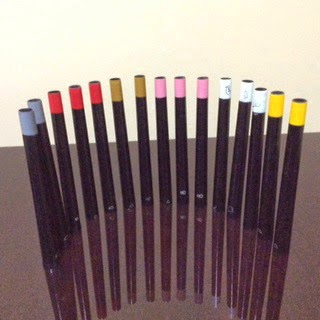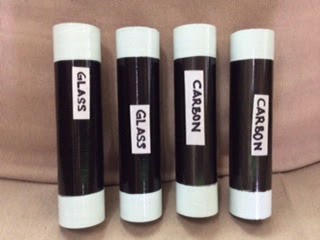Last night a friend of mine said I had overtones of Management Guru in my talks with friends and customers etc. He was not actually the first one to say this. There are quite a lot of people to tell me this.
I started auditing the issue and discovered that it was a part of my training to keep questioning till I had a satisfactory answers. And this I had learnt in my last job, where each of the projects and proposals and manufacturing and marketing issues were grilled and super grilled and in a big forum and one had to be ready with all the correct answers. Lest one was asked to go back and do his homework and then again present the case.
The same was part of my Management Education, where each presentation was ruthlessly questioned by the peers and the professors alike.
Guess, that is where I picked up the " Art Of Essential Questioning" .
The way our schooling is that most of us never go through interactive questioning in the class for many many fears and above all the fear of asking a very stupid question. The system carries on till the last technical degree .
Then you enter a job and asking questions to considered lack of skill and knowledge. No one ever questions anything around him for good order sake. Boss knows the Best.
The net result is that, when you start questioning these technicians or managers and they don't really have a satisfactory answer, because they themselves never ask the difficult questions either to their own self or subordinates or to their superiors or the suppliers or for that matter anywhere. Then they take an offensive stand against you for either being arrogant or trying to teach them management or intruding into their business. It is not considered awakening of rationality or finding the right answer.
A smart marketing guy goes answering questions all his life. He learns by sitting on the other side of the table, all his life. He gets an opportunity to see and capture hundreds of new methods, machines processes on account of his accessibility to clients biz. And it is only the smartest companies, who take the information from the marketer and exploit the same into their biz. But the smartest companies first ask , one hundred relevant questions. Unfortunately, this art of Essential Questioning does not exist at all.
Each time, I have a meeting with my client, where I am selling million dollar machines or projects, I ask the clients to keep the questionnaire ready and also give them the FAQ list to draw the question list. Yet, most unfortunately, rarely do clients have the right questions.
I was given a consulting assignment by a very renowned International Textile Company, where they wanted me to develop a Global market of Greige sewing thread . I then opened the market of Germany, Spain, Portugal, Italy, Japan and Brazil for them within 3 months. But since they themselves did not go through the process of first doing the right homework , by asking the right questions. The whole effort and Euro 200,000 was lost . Of-course when I snubbed them, I was rated arrogant and teaching them management.
When I go to sell the machines, none of the customer ever draws out a list, asking
- Deliverable s of the Machine : How do they compare with International market demands.
- Flexibility of the Machine: What flexibilities does the machine have to cater to the changing needs of market.
- Design of the Machine : Does it save space, power, labor against other offerings .
- Critical components : What are the critical components of the machine and where are these sourced from.
- Failure rate : Normally, what parts fail and what is the failure rate. How much was your spares sales in the last three years?
- Competencies : How many Graduate engineers you employ and how many Diplomas and how many fitters etc.
- Capabilities : Does anyone have a masters degree and does any one have a Ph.D in the core capabilities of the product being made by the company. Or the company is just a Topo master of copying and offloading the machines in the market.
- Experience : How many years of experience does the company have in making that product.
- Technology : Quiz the company on technology issues and see, if they know rightly, what current technologies are being used . Why another technology should not be used against the current offering of the supplier.
- Infrastructre : What kind of machines do they have for making the product. In a certain town in India, there are 10 TFO makers and not one of them has one single machine to make any part of the machine. But outsource the full machine , pack and sell. Great Biz model, but very poor product delivery against a company, which makes all the critical components and tests religiously all the outsourced parts.
- Quality : What kind of quality systems are used as visual online inspection for full lot ? The kind of test done to pass a product ? The Management systems and practices etc. Mind ISO9000 series is a totally useless certification and it is a total waste of time to have one or recognize one.
- What is the total capital employed in the biz. If public company ,ask for the balance sheet to see, if it strong enough or a paper tiger.
- How many employees are in the biz.
- Who are your top 10 customers. What machines and how many spindles have been sold to them.
- Competition : How they compare themselves with the nearest competitor in all the above. How many of the competitors have gone bankrupt in the last few years and why.
- Factory Visit : Will he allow the factory to be seen. This is the most important part to evaluate a supplier. Because more and more companies do not have any factory nowdays ,or they have a very poor factory, but come up with Big marketing talks. I lost an order of 30K springs in Europe to a company in India. I asked the supplier to visit that factor and my factory. After visiting, the order was transferred to me.
- Lastly, the most important is the residual value of the machine after 5 years. Technology is changing at a very fast pace and hence imminently, one would budget for usage of machine not more then 5 years. Therefore to calculate the DCF, one needs to know the residual value of the machine.
- Comparison of performance of a machine to machine working after 3 years. New machine, all work well , but it is only after 2 years, one gets to know the exact performance issues. I had one used Swiss coiling machine which worked for 30 years and then I bought a New Indian coiling machine at one third the price. After 2 years, the machine was all junk. Initially everything worked well, but as time passed, one after another thing started failing. Finally machine was scrapped. Did not even get any residual value out of it.
There are hundreds of questions, which one first has to address, before investing into a product.
But most interesting is not about the questionnaire on purchasing. Like I wrote in my last post that Top Level Textile company Material Manager was only interested in the cheapest price, irrespective of what product quality, you were delivering . After I told him that we use a Rs1 crore( USD200k) coiling machine to make a very precise Dyespring for you, He remarked. " I don't care, if you sit in a five star and make something for me " I was shocked. Now, when I explained to him the importance of technology to get precision in product and it comes with a certain price. I was immediately rated arrogant and teaching him management.
On my dear friend, I happen to discover that he was investing into a product line, which could be well taken by others with core competencies and at half the price and questioned him on it. He did not like this and ultimately of-course, he did have a good convincing argument that his investment into the product line was worth the effort. But not before rating me arrogant and Management Guru Overtones. This one is dedicated to all my dear friends, whom I question for the value of questioning.
The irony is that when you tell someone that there is more then what he knows and he needs to get to the right perspective by doing his homework. Immediately, the illiteracy of the person fights back with personal remarks .
I love criticism and open to people coming and telling me that there are still unanswered questions in your product or proposal or offerings. But never ever have I rated anyone Arrogant, or teaching me management, if I did not have an answer to his question. Infact, I had great respect for him that he was one, who did open a blind spot of mine.
Therefore, while " Art of Essential Questioning " is important to arrive at key decisions and these questions can be gruesome and most difficult, but be sure that the other person does not start feeling like a mickey mouse, because he did not have an answer. Then he will certainly get back to you with retort-ion of arrogant , teaching management, too big for his shoes etc etc.
No wonder, I am rated arrogant by so many of my own contemporaries , because I never stop putting up difficult questions and of-course difficult questions don't get you many friends . But not asking difficult questions does ruin many a biz , many a jobs and much of time and sucks away resources, because prudence was not exercised at the first place. Choice is yours. Rate others arrogant or take it as an unanswered or partly answered valid question.
I would say, I am aggressive and I changed to aggression at much later age in my life. I found it was far more helpful to manage things, then with compromises. Most compromises fail and are only sub optimal temporary solutions. In one of my earlier blog , I had written about the 50: 50 Managers, who are neither here , nor there. Sometimes, this aggression is subtly taken as arrogance. Let there be this positive jealousy, but let the courage of conviction flow.






